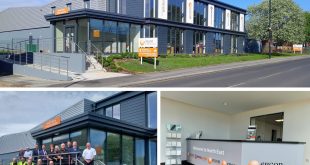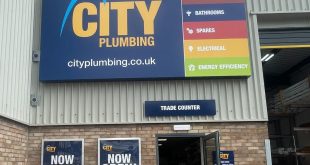The UK construction sector saw increases in business activity and incoming new work in November, although costs rose sharply at their fastest rate since April 2011.
That’s according to the Markit/CIPS UK Construction Purchasing Managers’ Index® (PMI® ) which picked up slightly to 52.8 in November, from 52.6 in October, thereby signalling an expansion of total business activity for the third month running. 50 is the point at which slowdown becomes growth.
Housebuilding activity remained the best performing category of construction output during November, despite the pace of expansion slipping to a three-month low. Construction firms meanwhile reported a marginal rebound in commercial activity, which ended a five-month period of decline. Civil engineering work remained the weakest area of activity.
The latest rise in incoming new business was the strongest since March and contrasted with a sustained decline in sales through the summer. Some workloads were even boosted by the reinstatement of projects that were delayed after the Brexit vote.
However, there were also reports that the stronger inflation backdrop had led to intense competitive pressures and squeezed margins.
The rate of cost inflation was the fastest for just over five-and-a-half years. This was overwhelmingly linked to supplier price hikes in response to exchange rate depreciation. Purchasing activity meanwhile increased at the fastest pace since the start of 2016. Stronger demand for inputs and low stocks among vendors resulted in the sharpest deterioration in supplier performance since June. Job creation was maintained across the construction sector in November, while the latest survey also highlighted the fastest rise in subcontractor usage so far in 2016.
Tim Moore, Senior Economist at IHS Markit and author of the Markit/CIPS Construction PMI® , said: “The brighter picture reflected another solid contribution from residential building and renewed growth in commercial work, which some companies linked to a resumption of projects that had been delayed after the Brexit vote.
“November’s survey data revealed the strongest rise in overall new business volumes since March. However, lingering economic uncertainty and subdued investor sentiment meant that optimism towards the year-ahead outlook remained close to its lowest since early-2013.
“Input cost inflation accelerated to its fastest for five-and-a-half years, driven by sharply rising imported raw material prices. A number of firms cited uncertainty related to supplier price hikes as an emerging threat to the construction sector, with survey respondents commenting on difficulties forecasting project costs against a backdrop of rapidly changing inflationary pressures.”
David Noble, Group Chief Executive Officer at the Chartered Institute of Procurement & Supply, said: “The sector was on a firmer footing this month, as a slight uptick in overall activity and the strongest level of new business growth since March, resulted in more stability after a summer of uncertainty at the time of the EU vote.
“Once again residential activity led the way, though at softer rates than those seen in October and at a more diminished rate than the survey’s long-range norm. Though this positive growth will provide some relief for the economy, continuing cost pressures will be a worry for the sector in the coming months. The impact of the weaker pound was widely felt in November, with cost inflation the strongest since early-2011. Higher prices were reported for a number of materials including bricks, blocks and slate, as businesses struggled with managing costs. Yet, in spite of this grip on precious margins, headcounts were increased and demand for subcontractors was also sustained.”
 Builders Merchants Journal – BMJ Publishing to Builders Merchants and the UK merchanting industry for more than 95 years
Builders Merchants Journal – BMJ Publishing to Builders Merchants and the UK merchanting industry for more than 95 years



